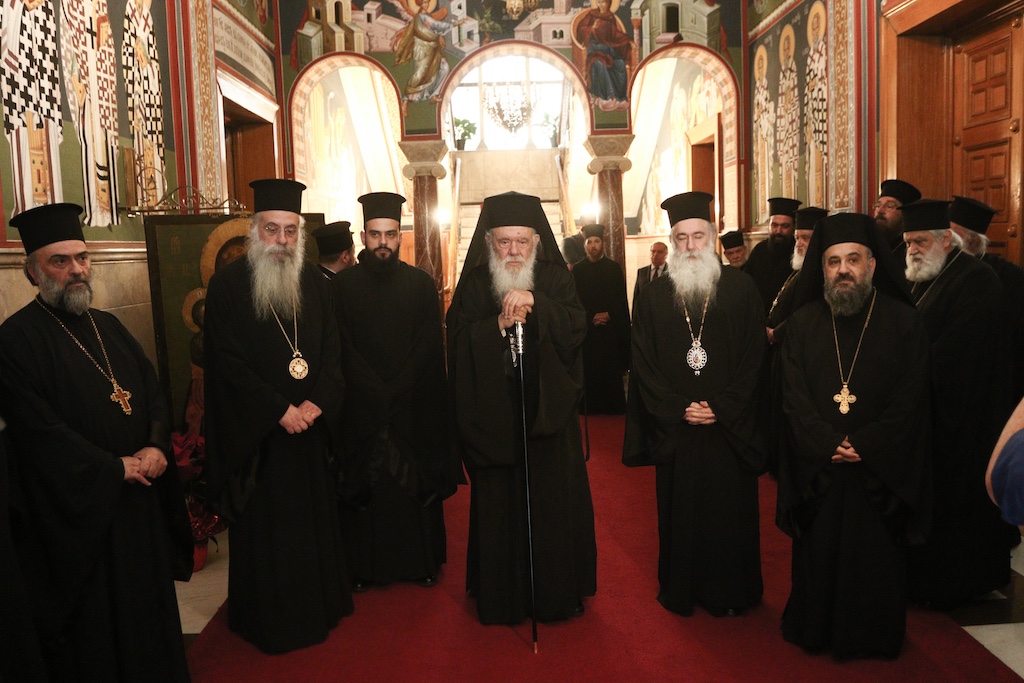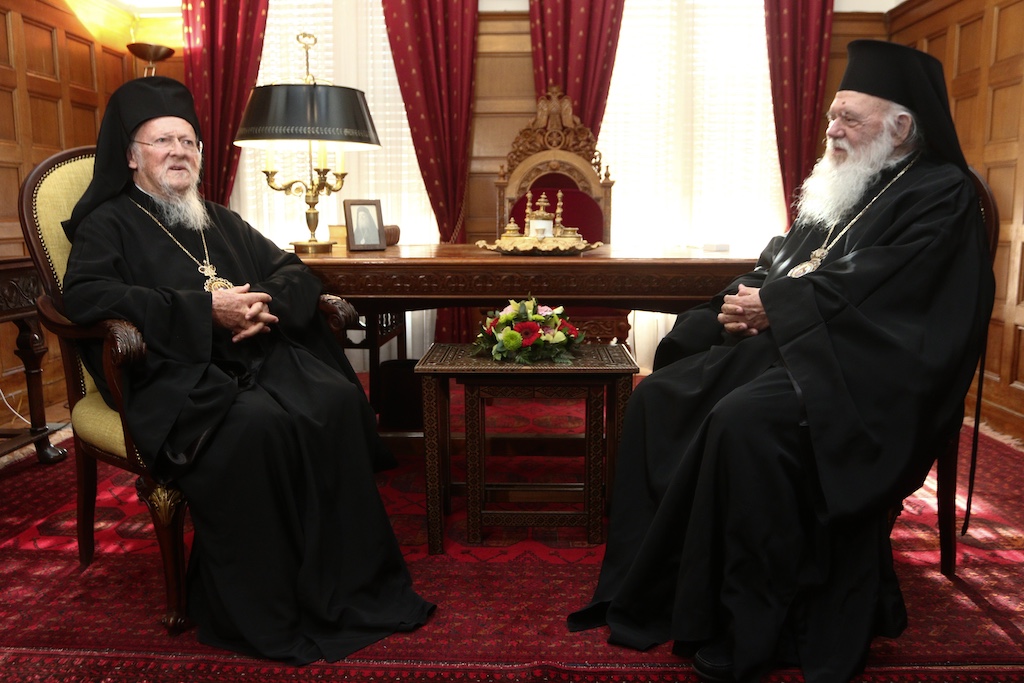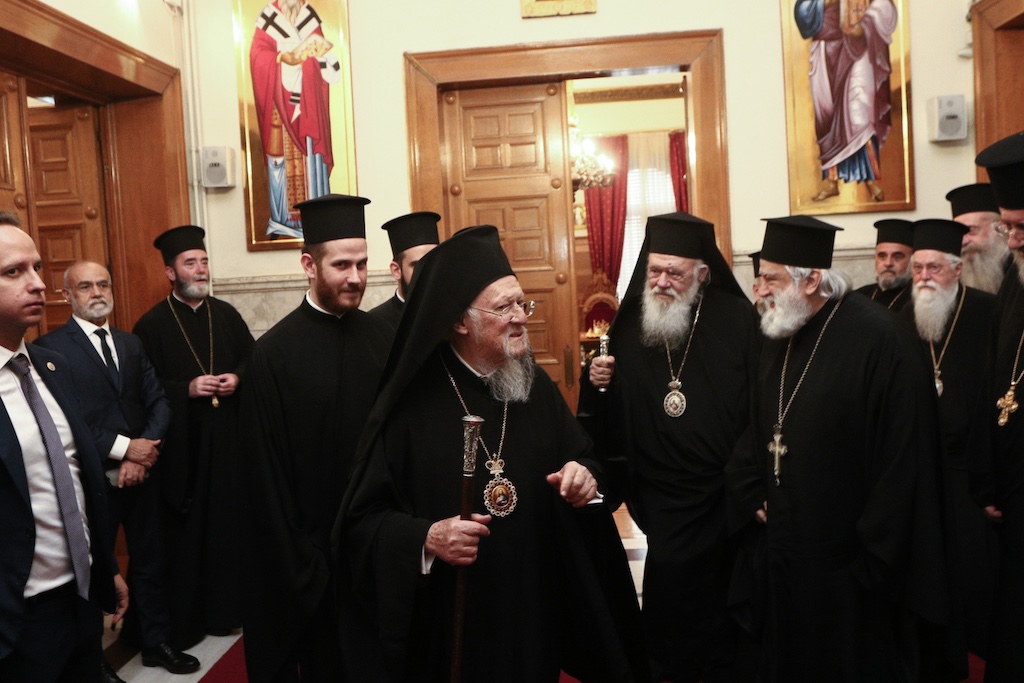The Ecumenical Patriarch Bartholomew is visiting Athens from Monday, April 15, 2024, at the invitation of Prime Minister Kyriakos Mitsotakis, to attend and speak at the 9th International Conference “Our Ocean”. Upon his arrival at Athens Airport, the Ecumenical Patriarch was greeted by representatives of the Government and the Church of Greece, clergy, and his family.
In the afternoon of the same day, the Ecumenical Patriarch visited Archbishop Ieronymos of Athens and All Greece, accompanied by his Chief Secretary, Archim. Barnabas Theocharis, the clergy of the Archdiocese, and his collaborators, warmly welcomed him at the entrance of the Archbishop’s Palace of St. Filothei. They then had a long private fraternal meeting during which the Patriarch expressed his joy for his visit to the capital of Greece and his new encounter with the Archbishop.
In the evening, the Ecumenical Patriarch attended a dinner hosted in his honor by Mr. Kouklomatis, President of the Board of Directors of the Athens Club. Also present at the dinner were Archbishop Ieronymos of Athens and All Greece, Hierarchs, representatives of the country’s political, military, and academic circles, officials of the Athens Stock Exchange, and other guests.
In his speech, the Ecumenical Patriarch described the Athens Club as “a historical institution and a symbol of the modern era of the illustrious city as the capital of Greece,” whose spirit, he said, is a combination and expression of spiritual and humanitarian values that know no borders and have global significance.
He continued: “We believe in the fourfold unity of the Greek people, in the presence and renewed fruitfulness of the ancient Greek spirit in Byzantium, so that it can be rightly said that “Hellenism is Byzantinizing”, among Westerners that “the ancient Greek spirit never faded in Byzantium”, or even under the Blessed Fr. Georgios Florovsky that “Hellenism was completed in the Church”. The ideals of the Greek people were preserved and enriched with communal content during Ottoman rule.
In the new entity of the Modern Greek State and the creative tension between ancient roots, Byzantine and post-Byzantine heritage, modern and contemporary orientations, and the many adventures of the people, the modern identity of Greece is formed, about which the words of Odysseus Elytis from “Axion Esti” are true: “Though touching Asia on one side and brushing Europe on the other it stands there all alone in aether and in sea”.
How “alone” is indeed the land where the great idea of freedom was born, which has since marked the course of history, enriched by Christianity through its association with “being in Christ and for Christ”, with the “truest freedom” as a gift which, in its experience and eternal perspective, transcends the limits of any humanism, expressed in sacrificial love, a love that “does not seek its own” but “the good of the other”.
Translated by Ioanna Georgakopoulou


















